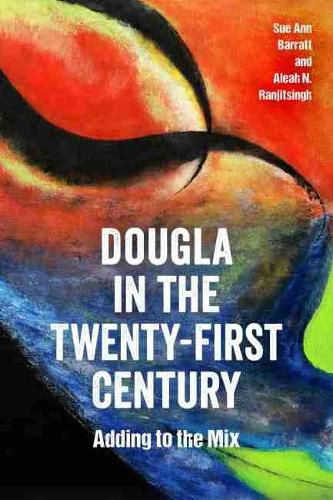Readings Newsletter
Become a Readings Member to make your shopping experience even easier.
Sign in or sign up for free!
You’re not far away from qualifying for FREE standard shipping within Australia
You’ve qualified for FREE standard shipping within Australia
The cart is loading…






This title is printed to order. This book may have been self-published. If so, we cannot guarantee the quality of the content. In the main most books will have gone through the editing process however some may not. We therefore suggest that you be aware of this before ordering this book. If in doubt check either the author or publisher’s details as we are unable to accept any returns unless they are faulty. Please contact us if you have any questions.
Identity is often fraught for multiracial Douglas, people of both South Asian and African descent in the Caribbean. In this groundbreaking volume, Sue Ann Barratt and Aleah N. Ranjitsingh explore the particular meanings of a Dougla identity and examine Dougla maneuverability both at home and in the diaspora.
The authors scrutinize the perception of Douglaness over time, contemporary Douglas negotiations of social demands, their expansion of ethnicity as an intersectional identity, and the experiences of Douglas within the diaspora outside the Caribbean. Through an examination of how Douglas experience their claim to multiracialism and how ethnic identity may be enforced or interrupted, the authors firmly situate this analysis in ongoing debates about multiracial identity.
Based on interviews with over one hundred Douglas, Barratt and Ranjitsingh explore the multiple subjectivities Douglas express, confirm, challenge, negotiate, and add to prevailing understandings. Contemplating this, Dougla in the Twenty-First Century adds to the global discourse of multiethnic identity and how it impacts living both in the Caribbean, where it is easily recognizable, and in the diaspora, where the Dougla remains a largely unacknowledged designation. This book deliberately expands the conversation beyond the limits of biraciality and the Black/white binary and contributes nuance to current interpretations of the lives of multiracial people by introducing Douglas as they carve out their lives in the Caribbean.
$9.00 standard shipping within Australia
FREE standard shipping within Australia for orders over $100.00
Express & International shipping calculated at checkout
This title is printed to order. This book may have been self-published. If so, we cannot guarantee the quality of the content. In the main most books will have gone through the editing process however some may not. We therefore suggest that you be aware of this before ordering this book. If in doubt check either the author or publisher’s details as we are unable to accept any returns unless they are faulty. Please contact us if you have any questions.
Identity is often fraught for multiracial Douglas, people of both South Asian and African descent in the Caribbean. In this groundbreaking volume, Sue Ann Barratt and Aleah N. Ranjitsingh explore the particular meanings of a Dougla identity and examine Dougla maneuverability both at home and in the diaspora.
The authors scrutinize the perception of Douglaness over time, contemporary Douglas negotiations of social demands, their expansion of ethnicity as an intersectional identity, and the experiences of Douglas within the diaspora outside the Caribbean. Through an examination of how Douglas experience their claim to multiracialism and how ethnic identity may be enforced or interrupted, the authors firmly situate this analysis in ongoing debates about multiracial identity.
Based on interviews with over one hundred Douglas, Barratt and Ranjitsingh explore the multiple subjectivities Douglas express, confirm, challenge, negotiate, and add to prevailing understandings. Contemplating this, Dougla in the Twenty-First Century adds to the global discourse of multiethnic identity and how it impacts living both in the Caribbean, where it is easily recognizable, and in the diaspora, where the Dougla remains a largely unacknowledged designation. This book deliberately expands the conversation beyond the limits of biraciality and the Black/white binary and contributes nuance to current interpretations of the lives of multiracial people by introducing Douglas as they carve out their lives in the Caribbean.